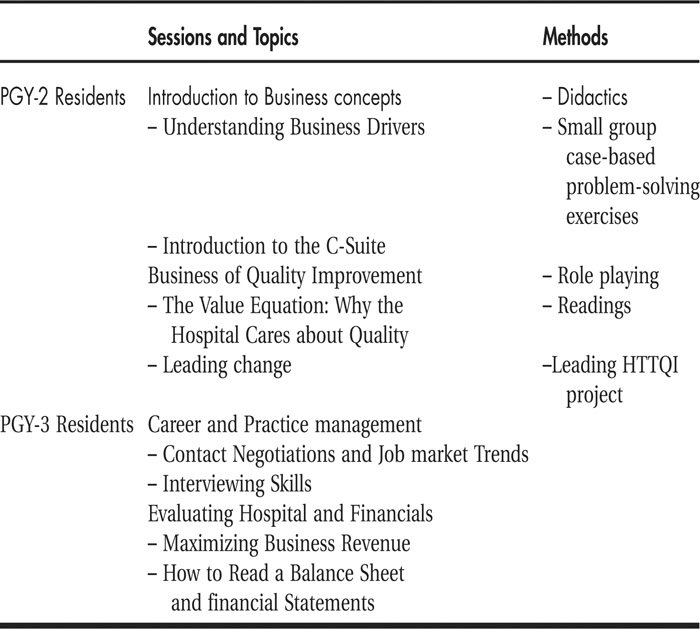Background:
Internal medicine residents lack formal training of concepts that pertain to the business of medicine. Previous studies of graduates of various specialties found young practitioners to have little knowledge about basic financial accounting principles and the economics of health care. Graduates were found to be poorly equipped to participate in practice management and in containment of health care costs. For hospitalists, knowledge of and understanding the business of medicine are of particular importance.
Purpose:
As part of a hospitalist training program for internal medicine residents aiming for careers as hospitalists, we designed a curriculum to improve residents’ knowledge and understanding of the intersection between health care and business in order to provide high‐quality and cost‐effective patient care.
Description:
The hospitalist training track, which started in 2004, is a training program for second‐and third‐year residents in our internal medicine residency program pursuing a career in hospital medicine. The business of medicine curriculum was developed as a cornerstone of the hospitalist training track. In our needs assessment, when asked if they had a good understanding of how U.S. health care is financed and how hospitals operate financially, 37% and 45% of surveyed residents disagreed, respectively. Also, 37% did not feel well prepared to enter contract negotiations with a potential employer, and 45% disagreed that they knew how to engage stakeholders driving hospital policy. Based on this, a revised business of medicine curriculum was implemented for academic year 2010‐2011 for 20 learners and was composed of 16 total hours of combined experiential and didactic learning methods that built on knowledge gained in earlier sessions. Broad topics covered included an introduction to business concepts, career and practice management, evaluation of hospital financials, and leadership. Table 1 provides further details. In the first year of implementation, 97% of residents agreed or strongly agreed that educational objectives had been met for each teaching session and 97% of residents agreed or strongly agreed that the content of the sessions would be useful in their future practice.
Conclusions:
A curriculum in the business of medicine can improve hospitalist residents’ knowledge and understanding of financial and practice management concepts. This training may better position internal medicine to interface with management, improve systems, and provide cost‐effective, patient‐centered care in the inpatient setting.
Disclosures:
D. Tad‐y ‐ none; J. Glasheen ‐ none; M. Guthrie ‐ none

